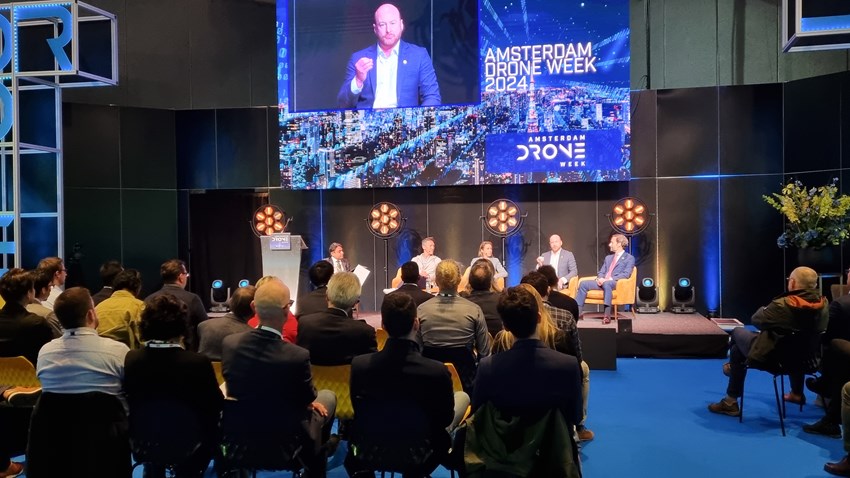"It feels absolutely right to build the type of infrastructure needed to enable real drone flights in a real context where societal benefits can be created at an early stage," says Henrik Littorin from the ELIS development program, which is conducting work with electrified aviation in Skellefteå.
According to Henrik Littorin, impressive work is underway worldwide to enable drone services in various fields. His perception is that drones need an ecosystem to function, but that the drones are ahead of the ecosystem itself, creating some frustration among certain stakeholders. At the same time, safety must always come first, which means things take time.
"Drones come in many forms, with both battery and hydrogen solutions. Many drones are starting to feel very robust, but many of them are not certified to fly in the severe weather conditions prevalent in large parts of northern Sweden”.
Several regions in Europe and the rest of the world are doing many things to prepare for large-scale implementation of drone services. The perception is that large urban areas face more challenges in this implementation than remote regions with a lack of sufficient ground transport infrastructure.

“During the conference, someone said, "Think globally, but act locally." I think this encapsulates the work done in Skellefteå and with Skellefteå Droneport, where we are preparing for global development in a very practical way by building drone infrastructure integrated into the urban environment, involving local stakeholders, and doing everything we can to get drones up in the air for societal benefit," continues Henrik Littorin.
“Skellefteå Droneport fills an important niche with its urban location and focus on real and useful services. Even the climate with winter, cold, dense forests and so on enables important test activities," says Martin Lundholm, Project Engineer at Skanska.
He believes that drones and drone-related services will not compete with existing transportation and deliveries, but rather complement them. Just as the advent of aviation did not compete with railways or cars. Instead, it complemented existing systems and fulfilled a different purpose than the existing ones could achieve.
“It is very important to engage local stakeholders and citizens at an early stage to create social acceptance. We still do not know how the public will react to increased drone usage," says Martin Lundholm.
Both agree that collaboration is the key to making things happen, but for it to work, one must start small and then scale up according to what authorities and others allow. The public sector, including municipalities and regions, must be involved for drone services to be implemented locally.
“When we came here, we thought everyone else had progressed much further than us, but after the conference, the feeling is almost the opposite. We are even more excited and energized. We have a different approach, which is very important in the development of drones," says Martin Lundholm.
The construction of Skellefteå Droneport is in full swing. The test facility is expected to be ready after the summer and will be established as an important node for research, development, and commercialization in drone cargo and innovation-driven autonomous air transport for numerous socially beneficial activities.
Skanska is a partner in several projects conducted by the ELIS program.
Read more about ELIS program's projects.
For more information, contact Henrik Littorin.
Related articles:
Project for drone shipping at Skellefteå Droneport
The ELIS program - Skellefteå Science City's development program for electric aviation - has the ambition to become a leading hub in research and development of electrified aviation in Sweden and beyond.






